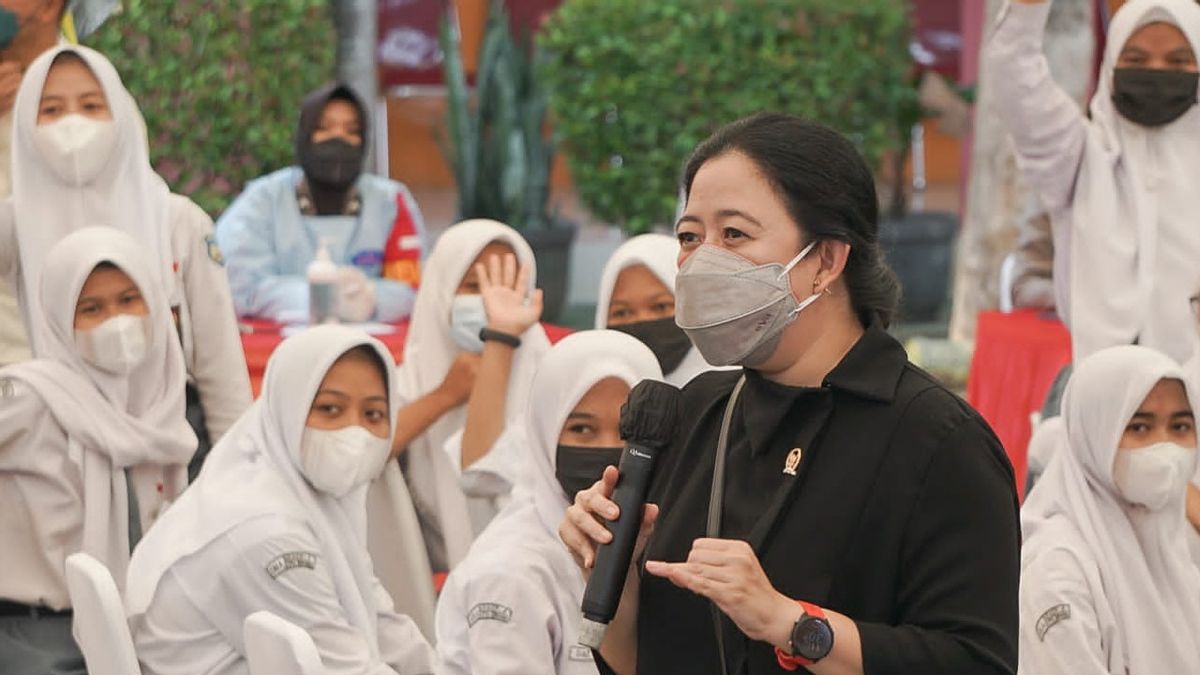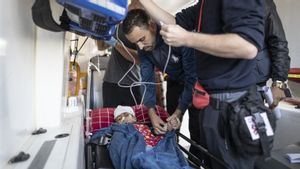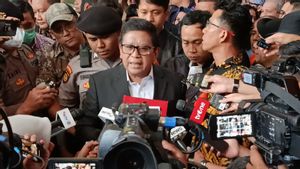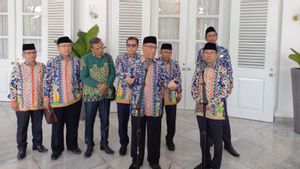JAKARTA - The Speaker of the House of Representatives, Puan Maharani, highlighted the high mortality rate in cases of mysterious acute kidney failure in children. He asked that the case of acute kidney failure be determined as an extraordinary event (KLB) if it met the criteria for determination.
"The case of acute kidney failure in children is quite worrying. If the existing data meets the requirements, immediately determine this disease as an extraordinary event or an outbreak," said Puan, Friday, October 21.
Acute kidney failure cases in children in Indonesia soared to more than 200 cases with the death rate of nearly 50 percent of the total cases a week after it was first reported. From the latest data, there have been 206 cases of acute kidney failure in which 99 children have died.
According to Puan, a case fatality rate that is quite high needs to be a consideration for the government to determine the KLB.
"This is like the tip of an iceberg. Hundreds of cases are known but the victims could be much more. This situation is very critical and threatens the safety of children," said the first woman who served as Chair of the Indonesian House of Representatives.
Puan said that the KLB status would affect handling and treatment steps in overcoming acute kidney failure, including financing and various other facilities. With the increase in status to KLB, all policy makers will have concern in handling this disease.
"With the KLB status, every child diagnosed with acute kidney failure, whether having BPJS Health or not, must be covered with health care and complete treatment," said Puan.
Without the KLB status, it is feared that many patients have difficulty accessing health care facilities because there is no financial assistance. Puan assessed that the determination of the KLB status was also related to the readiness of referral hospitals for children suffering from this disease.
"We must pay attention to how regional health facilities are not the same in each region. For areas whose health facilities are not adequate, further treatment is needed to other places that can treat acute kidney failure in children," he said.
Puan also encouraged the Government to allocate a special budget to handle this case in order to help low-economic communities whose children suffer signs of acute kidney failure.
Moreover, according to a number of experts, the handling of acute kidney failure cannot be done at the Puskesmas level. This is because there is a need for the availability of hemodialysis tools or peritoneal dialysis that requires a pediatrician.
"While the trend of cases continues to increase, and the death rate in three periods increases. So there must be a special policy from the Government in overcoming the rampant cases of acute kidney failure in children," said Puan.
The former Coordinating Minister for Human Development and Culture also assessed that the determination of acute kidney failure disease in children as a KLB will facilitate the coordination of relevant stakeholders. Be it cross-regional and provincial, or nationally.
"Of course it will also perfect the case handling system and optimize health human resources, as well as overcome this disease phenomenon," he said.
Until now, the Ministry of Health has not been able to determine the exact cause of acute kidney disorders that have plagued more than 200 Indonesian children. The number of cases also has the potential to increase considering there is a possibility of parents who have not or have difficulty accessing their children.
"Immediately investigated the cause of children's kidney failure so that the treatment is directed. The certainty of the cause of this disease is important to reduce public anxiety," said Puan.
The Food and Drug Supervisory Agency (BPOM) of the Republic of Indonesia has conducted testing and sampling of the type of child cirrhop which is suspected to contain cypress that triggers the mysterious acute kidney failure case in Indonesia. The government previously instructed the temporary ban on the sale and use of children's drugs in liquid form.
The substances suspected to be the trigger for the disease of acute kidney failure of children are Etylene Glikol (EG) and Dietilen Glikol (DEG) which are solvent chemicals. This material is used as a substitute for glycol propylene used by pharmaceutical factories as solvents in general medicines such as paracetamol.
From the announcement made by BPOM, there were 5 child sirop drugs that were contaminated with glycol ethilen (EG) so that their circulation had to be withdrawn because their EG content exceeded the safe threshold. Puan also asked for tighter supervision of drug production.
"If there is negligence from the drug manufacturer, it must be thoroughly investigated in accordance with applicable regulations," said Puan.
The government is also urged to conduct a thorough evaluation of the weakness of early detection of acute kidney disorders in children. This is because cases of acute kidney failure due to sirop drugs containing dietilen glycol chemicals have been found in a number of countries for a long time.
"With the case of acute kidney failure in children, Indonesia must transform the health sector," said Puan.
The existence of cases found in other countries should be a trigger for early detection in Indonesia. Instead of waiting for the death toll, just moving to conduct research," he continued.
Puan encourages local governments to move quickly to carry out early detection and be alert in serving pediatric patients with acute kidney failure. Moreover, a number of regions do not yet have limited dialysis services for children or hemodialysis.
All local governments, both provincial and district/city levels, are required to complete all health services with adequate facilities and medical equipment for handling cases of acute kidney failure of children.
"Prove that the central and regional governments really care about public health issues and the quality of life of the people," concluded Puan.
The English, Chinese, Japanese, Arabic, and French versions are automatically generated by the AI. So there may still be inaccuracies in translating, please always see Indonesian as our main language. (system supported by DigitalSiber.id)










